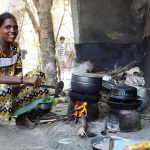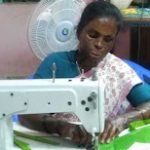HEALTH
Women’s health has been a cause for concern in the last few years, and rightly so. Women in India, especially from rural and vulnerable populations, can immensely benefit from health care programmes that enable them to be more aware of their body, lifestyle habits, and diet. As a result of patriarchal family structures, misinformation, and poor lifestyle choices, women are prone to a variety of health conditions that are not only pertinent to reproductive health but extend to all parts of the body. In this blog, we explore the maternal health charity report on Manjubehen Shalileshbai Bhil, a 17-year-old girl who was anaemic during her pregnancy.
CARE India scheduled a visit to Manjubehen through their field coordinators and front-line workers (FLWs) of project Vruddhi. Project Vruddhi includes reproductive and child health programmes, and the workers that were dispatched successfully mobilised ManjuBen to undergo Antenatal Care (ANC) visits as a precautionary step. The FLWs further educated ManjuBen and emphasised on consuming Iron-Folic Acid (IFA) foods such as leafy vegetables, lentils, and chickpeas to keep her Haemoglobin levels in check. In addition, they also gave Manjubehen three doses of Iron Sucrose.
A couple of months before ManjuBen delivered, Project Vruddhi’s team collaborated with the Health and ICD Department, Bhavnagar to host a workshop-cum-training on breastfeeding. This covered positioning, latching and growth monitoring, among other practices to follow when breastfeeding. The enriching experience also gave the FLWs an opportunity to hone their skill and expand their knowledge, which later benefitted Manjubehen throughout her pregnancy. Project Vruddhi’s team members diligently paid visits to ManjuBen, educating her on various post-birth techniques, including the Kangaroo-Mother-Care (KMC) technique. They also counselled the mother-in-law in person regarding diet intake and Manjuben’s health. Thanks to the timely intervention and swift action by CARE India’s front-line workers, Manjubehen delivered a healthy child weighing 2.7kgs at a private hospital in the village.
Despite proactive efforts, including being sensitised in her third semester, Manjubehen was incapable of breastfeeding her child within an hour of giving birth. On her mother-in-law’s advice, they fed the baby cow’s milk. As she candidly shared, “my mother-in-law believed that if I had any other food, I would have digestion issues, so I only had Bajra Raab (a warm drink made of millets, jaggery, carom seeds and ginger)”. After taking the diet restrictions into account, the FLWs and members of Project Vruddhi visited Manjubehen at her home for up to six days post delivery. They also shared extra tips that would further help Manjubehen with her child care, such as pillow support placement to avoid back pain and positioning tips for the child after drinking milk to facilitate digestion.
About the Programme
CARE India is a pioneering healthcare NGO in India. Project Vruddhi, undertaken in partnership with Action Against Hunger India, is a five-year program that seeks to support the Health and Family Welfare Department and Women and Child Development Department of the Government of Gujarat. Through the program, CARE India aims to educate, equip and upskill the communities in Bhavnagar and Sabarkantha, Gujarat.






